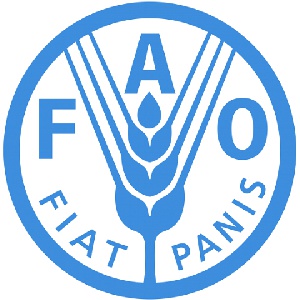The Food and Agriculture Organization (FAO) of the United Nations and the United States Agency for International Development has organized a day’s multi-disciplinary stakeholder seminar to celebrate the ‘2018 One Health Day’ in Ghana.
The day was set aside to build the culture necessary for how health challenges are assessed and addressed, as well as to bring global attention to the need for ‘One Health’ interactions.
Mr Baba Soumare, Regional Manager for West and Central Africa of FAO-ECTAD, said the seminar has come at a time when it has become a must to collaborate towards solving the various magnitudes of challenges facing the sector.
He said experiences has shown that the challenge was the inconsistency of the collaborations - not just collaborating during crises then after that they go back to our sectors and wait for a big outbreak so that we determine how to collaborate again.
The collaboration should actually be before, during and after the emergence of a health threat, he said.
“If we could clarify the institutional framework with which we can collectively, agree on what to share and how to share; and how often to share, starting from the surveillance stage by prioritizing the threats and how to go about it all together,” he said.
He said the FAO for some time now has been creating the awareness and reminders to countries that health was not just public health but the involvement of public, animal and environmental health.
Mr Frankline Bekoe, a representative from the Ghana Health Service, said many of the emerging and re-emerging conditions are symptomatic in nature and the meeting was very important to prioritize the thematic regions in the country which stands at six.
He said in times past what was very challenging was who the players of the ‘One Health Project’ were.
For human, he said, it appears a bit easy to identify who the players are, but environment and animal poses different challenges.
Mr Bekoe said: “As a country we need to be able to clearly define who the key players are or who it was refereeing to in order to be able to identify the roles each plays”.
He said one key problem about One Health was about data sharing which was not unique to Ghana, but to the whole world. Data must be able to flow among all the key areas, saying other countries have been able to form an interface of direct information between health and animals.
Mr Bekoe said Ghana was trying to form a one-off platform, as a focal point so that if an issue is noted it could easily be shared.
“The whole essence about this issue is about early detection and response. And as partners, there is the need for the elements of trust, transparency and accountability among us to attain the full benefit of One Health.
He said information sharing was actually one area that needed to be stressed as information delayed had a lot of implications.
Mr Gariba Ahmed, Country Team Leader, said the seminar was to create awareness on the one health concept in prevention, detection and response of health threats; to create a platform, for human, animal, wildlife and environmental health professionals to meet and interact.
It was also to bring together relevant chief directors of ministries to participate in the celebration of international One Health day.
Health News of Tuesday, 6 November 2018
Source: ghananewsagency.org

















